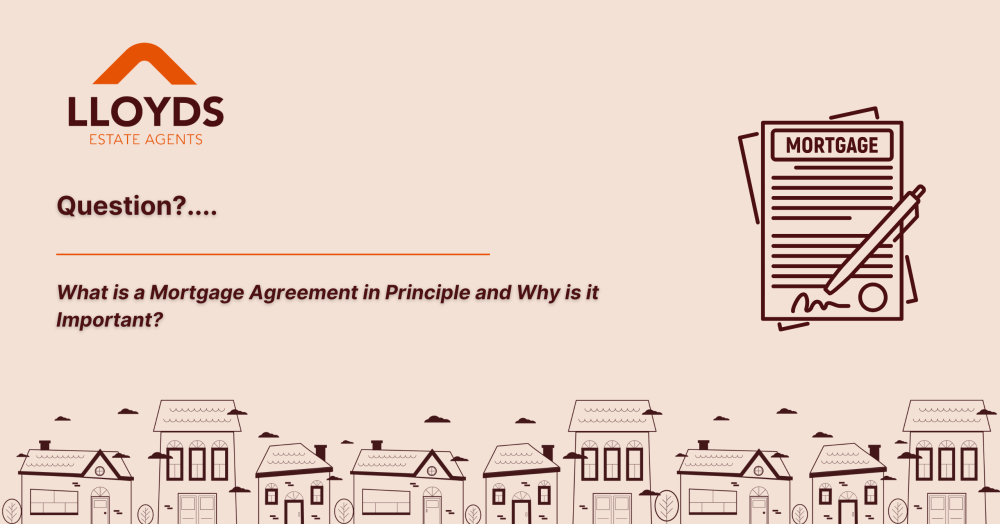When you're preparing to buy a home, there are a lot of moving parts to consider—from browsing listings to arranging viewings and making offers.
One key step that can help streamline the process is securing a Mortgage Agreement in Principle (AIP), also known as a Decision in Principle or Mortgage in Principle.
When you're preparing to buy a home, there are a lot of moving parts to consider—from browsing listings to arranging viewings and making offers.
One key step that can help streamline the process is securing a Mortgage Agreement in Principle (AIP), also known as a Decision in Principle or Mortgage in Principle.
But what exactly is it, and why should you get one early on in your property search?
What Is a Mortgage Agreement in Principle?
A Mortgage Agreement in Principle is a statement from a lender indicating how much they might be willing to lend you based on an initial assessment of your finances. It’s not a formal mortgage offer, and it doesn’t guarantee you’ll get a mortgage, but it gives you a strong indication of your borrowing power.
To issue an AIP, a lender will typically ask for:
Basic personal and financial details
Income information
Details of existing financial commitments
Consent to run a soft credit check (which doesn’t affect your credit score)
Once this is reviewed, they’ll give you a figure that represents how much you could borrow, usually valid for 60 to 90 days.
Why Is a Mortgage in Principle Important?
Here are the key reasons why getting a Mortgage Agreement in Principle is a smart move when starting your property search:
1. It Shows You’re a Serious Buyer
Estate agents and sellers are more likely to take you seriously if you already have an AIP. It shows that you’re financially prepared and not just browsing. In competitive markets, it can even give you the edge over other buyers who haven’t taken this step.
2. It Helps You Set a Realistic Budget
Knowing how much a lender is willing to lend gives you a clear picture of what kind of properties are within your budget. This helps you focus your search and avoid wasting time on homes that are out of reach financially.
3. It Speeds Up the Buying Process
Once you find a property you like, having an AIP can speed up the process of putting in an offer and progressing to a full mortgage application. Sellers love a buyer who’s ready to move quickly.
4. It Highlights Any Potential Issues Early On
Because an AIP involves a credit check and some financial assessment, it can flag up any problems that might affect your ability to get a mortgage. Better to know now than after you’ve fallen in love with a property.
Final Thoughts
Getting a Mortgage Agreement in Principle is a smart and simple step that can give you confidence, credibility, and clarity as you start your property search. While it’s not a guarantee, it lays the groundwork for a smoother, more informed buying journey – and shows sellers that you mean business.
If you’re unsure where to start, a mortgage broker or independent financial adviser can help you find the right lender and guide you through the process.

